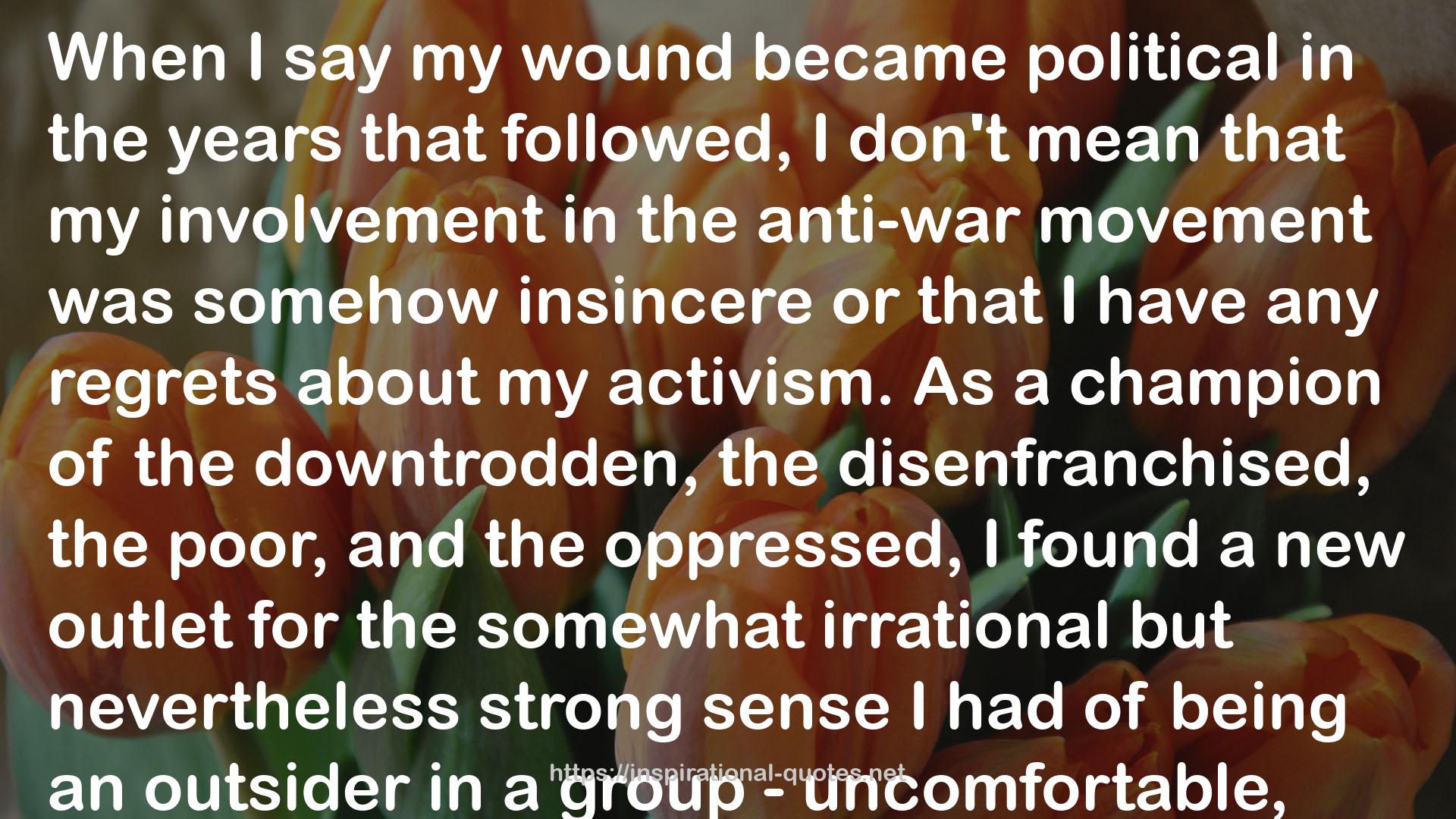" When I say my wound became political in the years that followed, I don't mean that my involvement in the anti-war movement was somehow insincere or that I have any regrets about my activism. As a champion of the downtrodden, the disenfranchised, the poor, and the oppressed, I found a new outlet for the somewhat irrational but nevertheless strong sense I had of being an outsider in a group - uncomfortable, awkward, and quick to feel a slight. Political feeling can't exist without identification, and mine inevitably went to people without power, In contrast, right-wing ideologies often appeal to those who want to link themselves to authority, people for whom the sight of military parades or soldiers marching off to war is aggrandizing, not painful. Inevitably, there is sublimation in politics, too. It becomes an avenue for suppressed aggression and anger, and I was no exception. And so it was that armed with passion and gorged on political history, I became a firebrand at fourteen. For three years, I read and argued and demonstrated. I marched against the Vietnam War, helped print strike T-shirts at Carleton College after the deaths of four students at Kent State, attended rallies, raised money for war-torn Mozambique, signed petitions, licked envelopes for the American Indian Movement, and turned into a feminist. But even then, I didn't believe all the rhetoric. "
― Siri Hustvedt , A Plea for Eros: Essays
